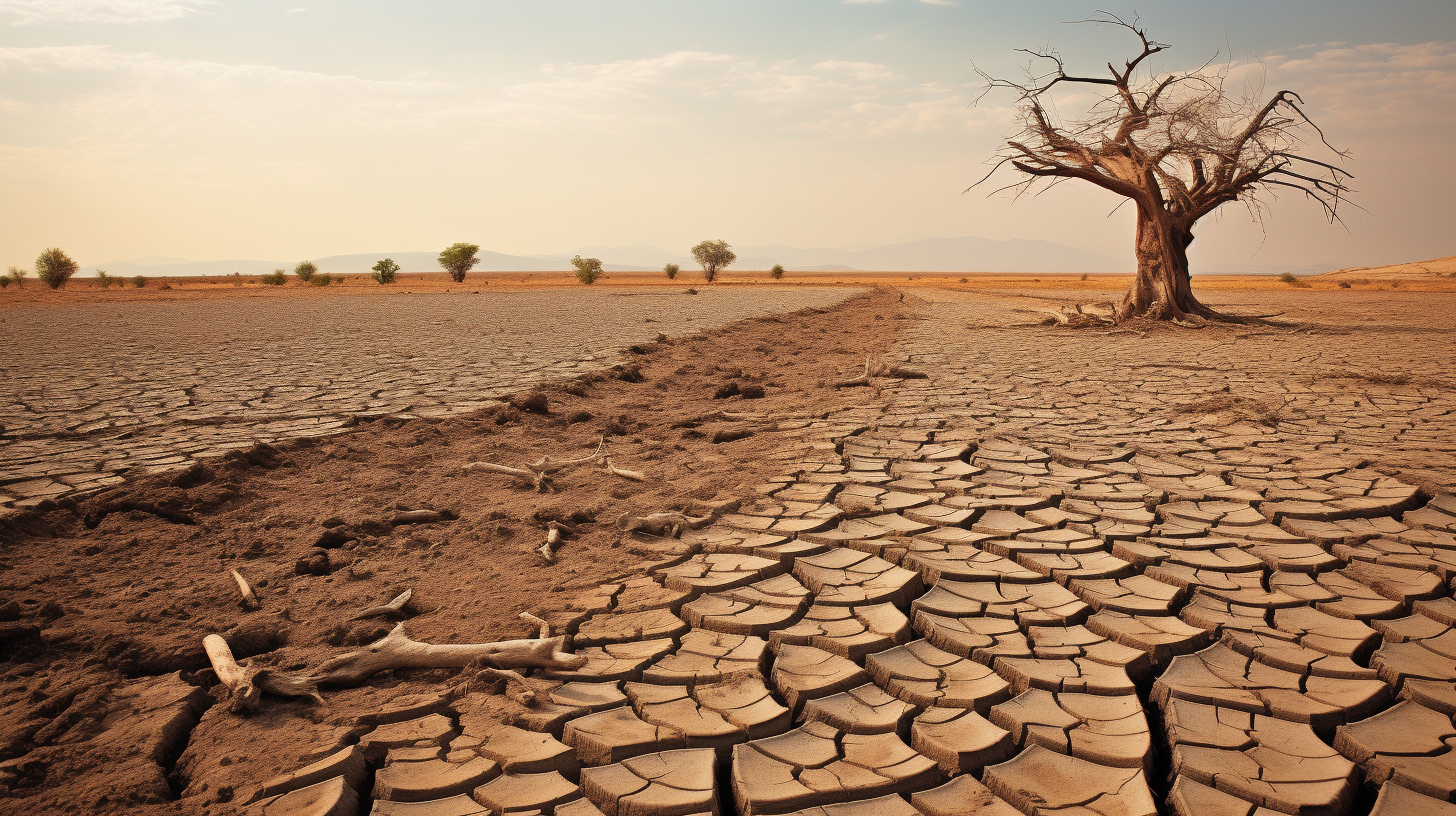In a verdant past, dew was merely a morning’s delicate adornment, glistening transiently on blades of grass before the day’s warmth hoisted it away. Now, it clings to the thorns of parched shrubs like the last tear of Mother Earth, a faint pulse in a world gasping for moisture. ‘Without Rain, Do We Cherish the Dew?’ is a query that, unlike any time before, demands contemplation, as parched populations strive to glean water from an unforgiving land.
As the skies remain adamantly clear, a question that was once metaphoric has become literal. People teem at innovations’ doorsteps, no longer able to depend on the heavens to open. The cessation of rain mentioned in When the Rains Never Came narrated a prelude to the desolation. Now, we look at desperate yet genius means to which humanity has turned to survive.
The turn to dew is not merely a poetic fascination, but a battle for endurance. Scientists with furrowed brows and sun-beaten necks fashion aero-meshes that capture dew. These wide, spider-like structures stand against dawn’s light – a fresh emblem of human resilience. They ensnare precious humidity, trickle by trickle, a boon where once we only awaited rain.
An innovator in the field, Dr. Erin Yautja, captures the gravity of the situation: ‘Yesterday’s poets wrote of dew romantically, today we engineer it crucially.’ Her words echo as we explore the villages that rely on these contraptions. There, children learn to clean and maintain the aero-meshes before they learn to read. Water, once taken for granted, is now a curriculum – its procurement a conjuring act from the ether itself.
But curiosity begets creativity. In the shadow of empty reservoirs, we have found community-run dew ponds, once an old-country method of sustaining livestock now adapted for human need. Here, the youth coach the elders, for it is they who will bear the brunt of this climate’s legacy. A boy of only twelve, Mani, proudly shows us the pond his class dug. ‘It’s not the sea, but it’s closer than clouds,’ he says, with a grin as parched as the land.
Yet, how does one quantify this measure? Can dew be our salvation? It’s a droplet in an ocean of need. There’s no shying away from the reality; a somber mathematician from the University of Nowhere calculates, ‘To sustain a single person, you’d require a mesh the size of a soccer field.’ Therefore, these dew harvesters are not a panacea but stand as testaments to our adaptability.
As we traverse the cracked plains, ingenious survival tactics abound. There are those who harvest precious condensation from the exhaust of rattling generators – a testament to necessity being the mother of invention. There are the Water Wanderers, a nomadic tribe whose entire existence is devoted to tracing and tapping the elusive underground springs that evade most modern detection methods.
The relentless march of drought spells out a story as harrowing as it is inspiring. Without rain, each morning’s dew is a lifeline, a temporary stay against a parched death. We witness an era where water does not flow, but rather collects – in hidden pockets, on poised meshes, in the breath of morning air.
Despite all this, the specter of an eternal dry spell casts long shadows. In the corners of exhausted eyes, one reads an unspoken query: ‘What happens when the dew, too, decides to abandon us?’ There are no myths left to be written about this – only the stark, lived history of those who seek moisture in a desiccated land. Still, even in the darkest of these green dystopias, humanity’s hope flickers within every innovative drop harvested from the undying dew.
While this might not be the salvation we prayed for, it is survival crafted by the very hands of those refused by the rain. It is here we learn that every drop is an anthem, every harvest a victory, and every morning’s dew a reminder of our fight amidst the greatest drought.
